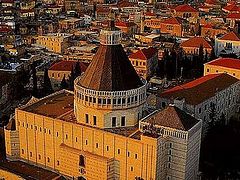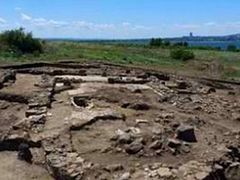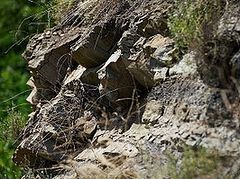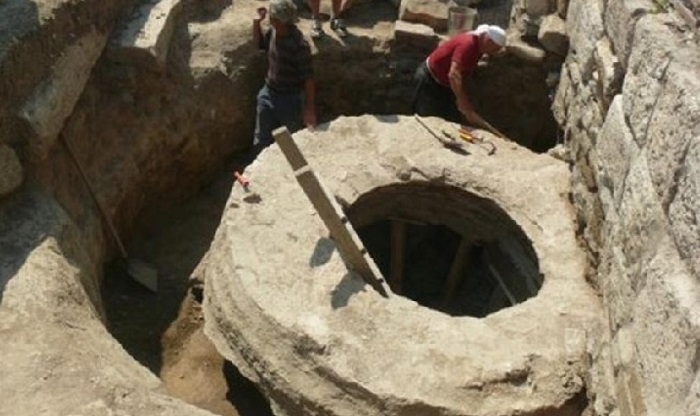
The grave of a prince who was to become the khan of Bulgaria but refused to deny Christ and was then martyred for it by his brother in the year 833, has been excavated in Pliska, Bulgaria. St. Boyan Enravota's tomb was known to have been on the grounds of the ruins of Europe's largest basilica.
Archaeology in Bulgaria reports that archaeologists found the tomb near a well in the basilica sacred to both pagans and Christians. At the time Enravota or Voin (Warrior) was elected to become khan, the Bulgarian state was still pagan, though there were many Christians living there. The people of the nation included Thracians, Slavs and Bulgars. The population of Christians was augmented in the early 9th century when Khan Khrum the Fearsome captured Byzantine Christians and took them to Bulgaria as slaves.
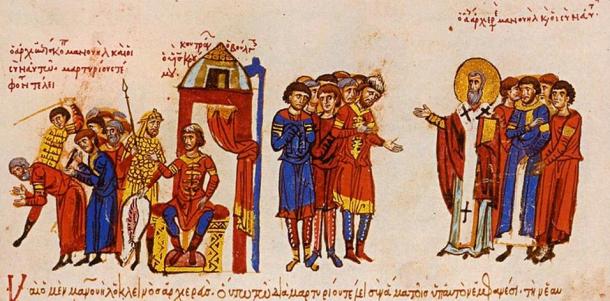 The persecution of Christians in Bulgaria
The persecution of Christians in Bulgaria
The Bulgars considered Enravota a traitor to the ancient traditions of his people, and his brother Malamir or Vladimir beheaded him by sword for it. Enravota is considered one of the most important saints in Bulgaria's history.
His younger brother Malamir or Vladimir had him killed after he said he would die rather than renounce his faith and baptism under the “foreign god,” as his brother called Jesus. Malamir, the youngest son of the khan Omurtag, had imprisoned and tortured the man who'd converted and baptized Enravota and tutored some of their relatives. Envravota was to have taken the khanship, but Malamir did instead.
“A team of archaeologists led by Professor Pavel Georgiev has recently started excavating the ruins of the Great Basilica in Pliska, the largest Christian temple in Europe from the 9th until the 17th century (i.e. until the construction of the St. Peter Basilica in the Vatican),” says the blog Archaeology in Bulgaria. “The excavations are supposed to set the ground for the restoration of the Great Basilica in order to promote both patriotic sentiments, and cultural tourism in Bulgaria.
“After Khan Omurtag’s death, Knyaz Boyan Enravota was supposed to inherit his father’s throne. However, some of the members of the high aristocracy of the Ancient Bulgars known as boilas were opposed to his ascension to the throne because of rumors that he had become a Christian. (The First Bulgarian Empire adopted Christianity as its official and only state religion only in 865 AD, and until then the Ancient Bulgars, Slavs, and Thracians who merged to make the Bulgarian ethnicity were still worshipping their different pagan gods.)”
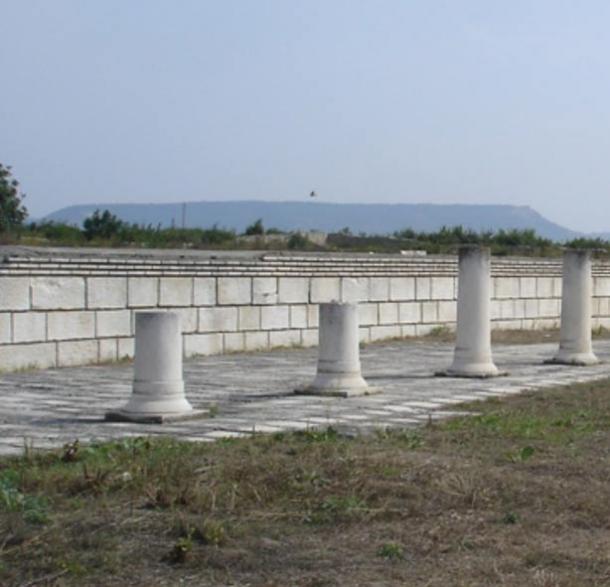 The ruins of the basilica in Pliska, Bulgaria's first capital.
The ruins of the basilica in Pliska, Bulgaria's first capital.
Malamir died young and the throne passed to Presiyan around 845 AD. Presiyan constructed a small martyr's church above the holy well or sacred spring and interred his brother there.
Bulgaria adopted Christianity as its formal religion during the reign of Presiyan's son and Enravota's nephew, St. Knyaz Boris I Mihail in 865. In May 2015 the head of the Bulgarian Orthodox church held a religious ceremony at the basilica to commemorate 1,150 years of Christianity in Bulgaria.
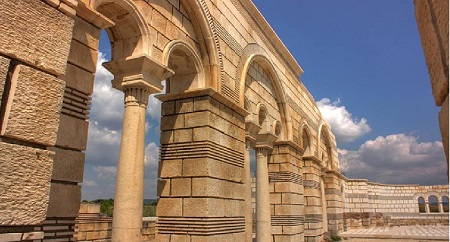 A view of the partially reconstructed Great Basilica of Pliska
A view of the partially reconstructed Great Basilica of Pliska
The Great Basilica is set in an architectural complex that includes an archbishop's palace and monastery and the cathedral itself. The complex was completed around 875. The ruins of the historic city of Pliska are 3 km (5 miles) north of the modern town of Pliska, where about 1,100 people now live.

